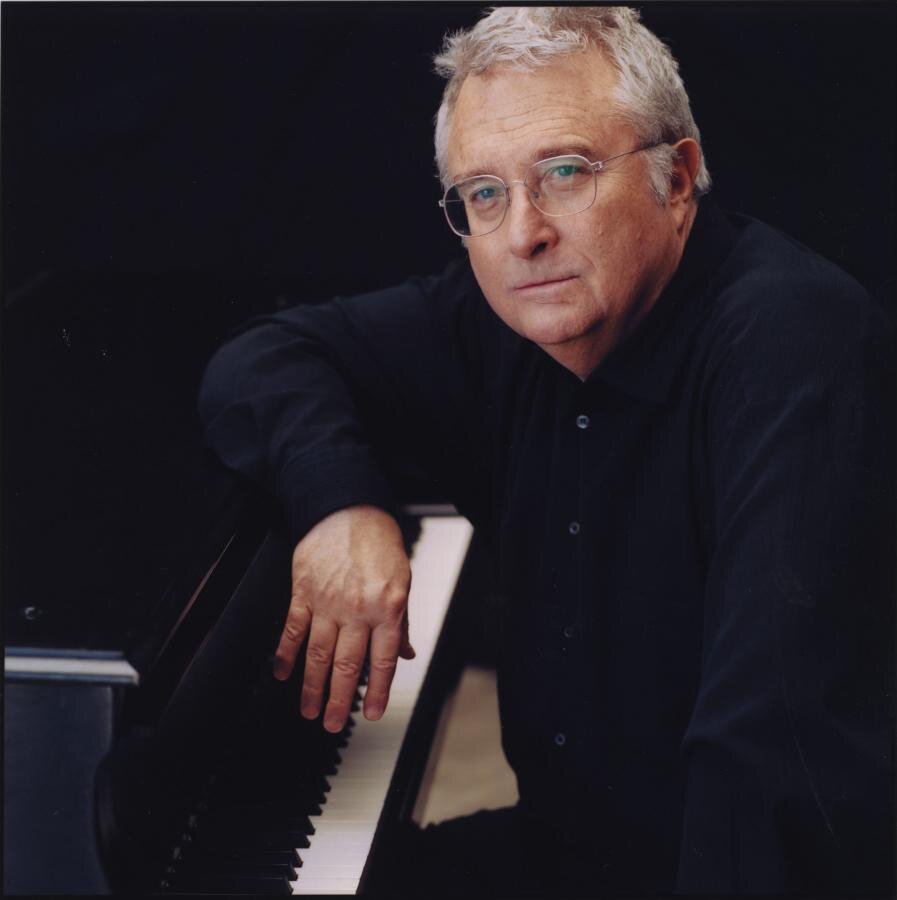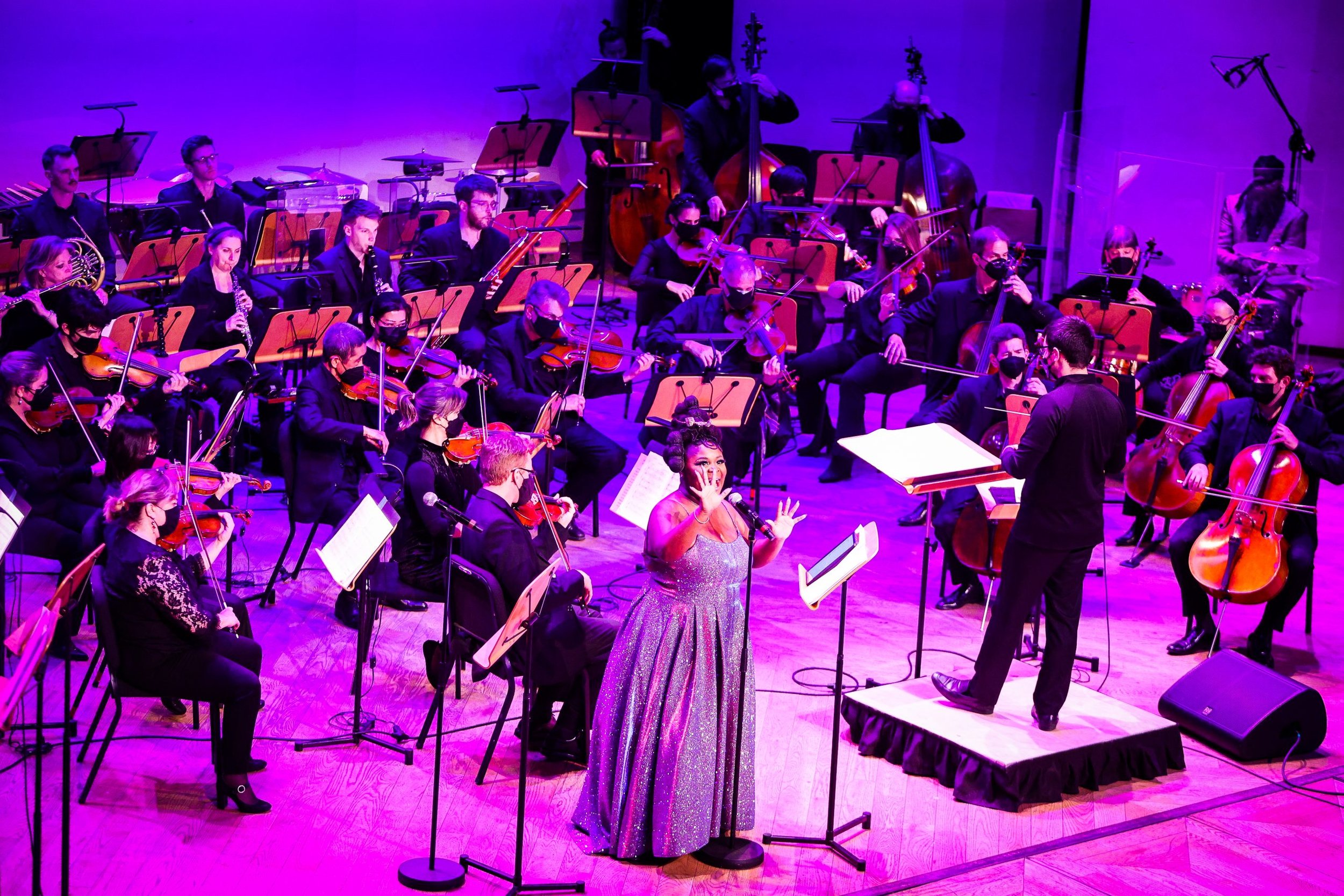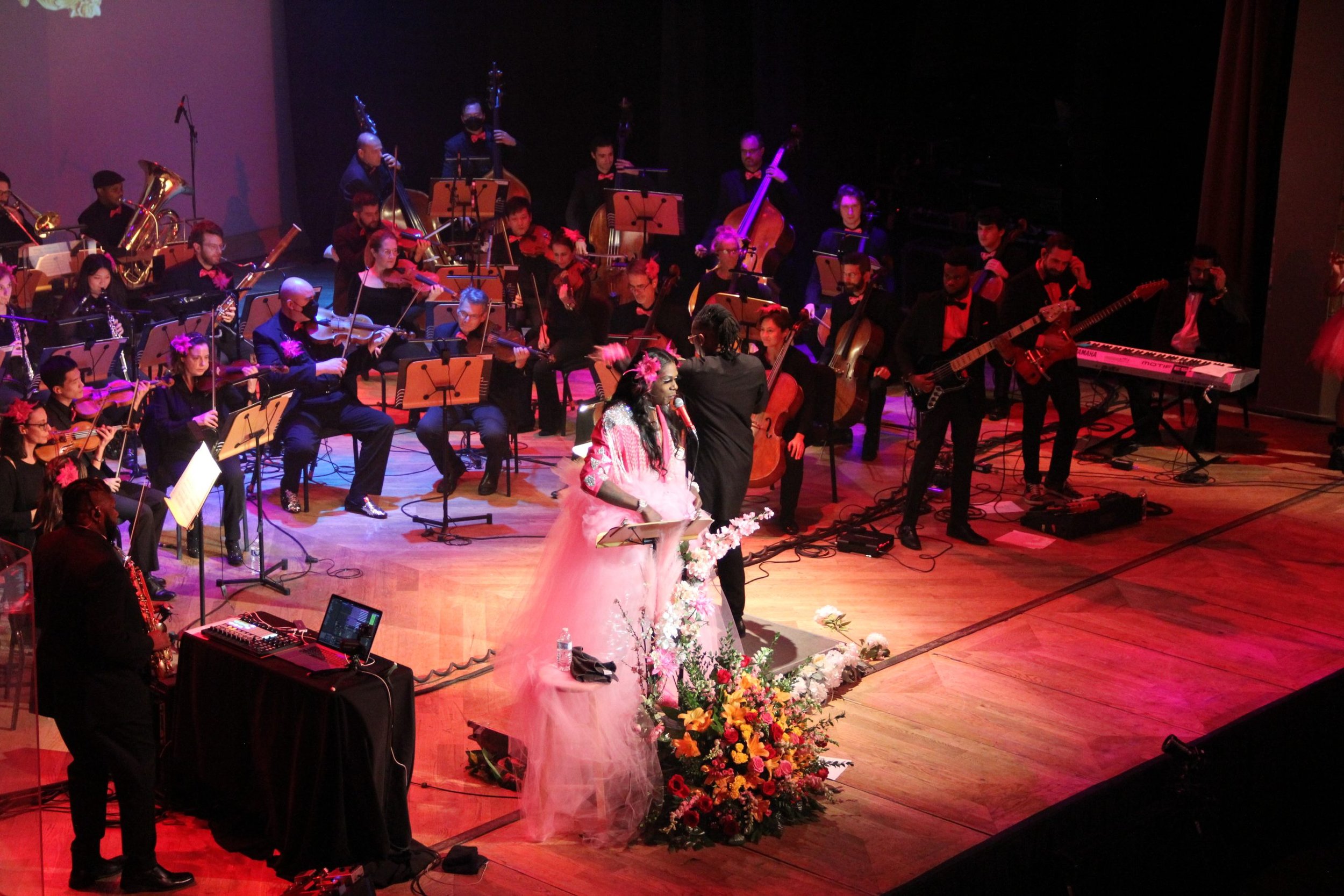Last Night: Randy Newman Went Meta

When performing with the LPO, he lept up a running commentary on his songs, his career, and the show so far.
“Did I sing the Standard Oil verse twice?” asked Randy Newman. Members of the Louisiana Philharmonic Orchestra fanned out around him onstage at the Mahalia Jackson Performing Arts Center. A sold out audience laughed its affirmation, so Newman went back and did the Roosevelt Hotel verse of “Kingfish,” from his 1974 Good Old Boys album. We weren’t mad that he’d forgotten his lines, and wouldn’t have been uptight if he’d moved on. But as he did throughout the night, Newman seemed intent on leveling with us.
Maybe that’s his regular stage manner, but all night long, Newman seemed at home, unspooling a running commentary on his playing, his career, the music business and the orchestra. Most of the show found him at a grand piano, but even when he took the conductor’s podium from Stuart Chafetz, he continued to turn and deliver wisecracks, shrugs of self-effacement and puzzlement. We know he spent time here as a kid, had family in the audience and, to me at least, sounds vaguely local. Perhaps as a result, there was an intimacy to the whole thing that worked well.
Sucks to say, but the theater could barely accommodate the sell-out. The folks at will call were shell shocked, the ushers were unsure, the line for a drink at intermission was prohibitive, and the line to the men’s room was mindboggling. For real, all the male bladders (and this is a Randy Newman show, so imagine the wear and tear involved) in the top two levels were emptied into a men’s room with four urinals and four stalls. You should read this Chris Rose article about the 2009 grand opening, directed by C. Ray Nagin. Seriously, read it.
The orchestra participated in about half of the songs in each set, with fine renditions of Newman’s movie scores, conducted by the man himself. It was interesting to hear his soundtrack work alongside the solo numbers. Newman is blessed with the ability to inhabit horrendous people, a talent that draws from the same humanism that gives sound to cartoon characters. The narrator of “My Life is Good” is a vain L.A. dick, but a cousin only once or twice removed from a loveable Pixar schlub. Between songs at Mahalia Jackson he referenced his work with the animation studio several times, like an expert carpenter from St. Bernard might mention the corporate stiffs whose perpetual home renovation dramas he solves at a premium. It’s a job, he seemed to say, and I’m really good at it, so there you go. You just do this, stick in some 16th notes here, and the garage looks great. In 1984, Newman knew exactly the right degree of schmaltzy awe for The Natural. Not a trace of “In Germany Before the War” marked the idealism, but that disfigured darkness—in the movie score and the solo work—that’s why he’s interesting. And still up there playing and making money, probably.
Oh, yeah: "Louisiana 1927." It was good, but a more interesting performance of the song: a few months before he passed, Coco Robicheaux sat on a barstool in the Apple Barrel. I sat at a table with a few associates, fresh from a highly disappointing meeting with a club owner. It was around 7 p.m. and the evening's band kicked off it its set with "Louisiana 1927." It was saccharinely sincere, plodding--everything bad that's been done to that song because of its parallels to our own misfortune. When the song ended, a silent beat passed. Then Coco growled, "You're playing it too fast, man." The whole room fell out. I can't think of that song without thinking of Coco.
Newman made a funny crack about millennial musicians who, he imagined, must rage that “the stage is clogged with thick, gray haired” bands from the 1970s sucking up the money. He paid his respects to Joe Cocker with “You Can Leave Your Hat On,” and said he remembered watching the baseball New Orleans Pelicans as a boy, “But who cares?” At intermission, he told us he’d take a break to “have a drink, shoot up.” Just a funny, engaged if not always prepared, performance. The audience listened to his rambling commentary and the songs with equal interest, trying to catch the jokes as Newman sketched his strange, familiar figures--himself included.






